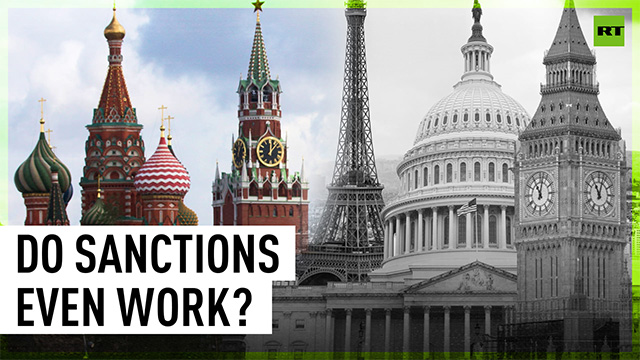
U.S. sanctions have historically struck fear across global markets.
Companies and countries scrambled to avoid being on the wrong side of Washington. Yet despite unprecedented measures against Russia, hundreds of billions of dollars in cross-border trade continue to flow.
Why?
While traditional banking channels were cut off, digital finance, payment innovations, and alternative rails reshaped how money moves. The Russia example highlights both the resilience of financial networks and the limits of sanctions in a digitized economy, FORBS stresses.
Financial Networks Are Difficult to Untie
When sanctions hit Russia’s largest banks in 2022, the expectation was clear: cut Moscow off from the global system and financial paralysis would follow. But within months, cracks in this assumption emerged.
Russia redirected oil exports to Asia, often denominated in non-dollar currencies. “Shadow fleets” of tankers avoided Western insurance and created parallel supply chains. Meanwhile, fintech workarounds including digital wallets and regional payment rails allowed transactions to bypass sanctioned banks. The growth of China’s CIPS network, India’s rupee-denominated settlement systems, and homegrown Russian fintech alternatives illustrated a critical lesson: sanctions are powerful, but not airtight.
For investors and operators in the fintech sector, this reality matters. Sanctions enforcement increasingly extends to digital asset platforms, payment providers, and cross-border fintech startups. Compliance risk is no longer confined to banks. Global regulatory fines soared to a record $19.3 billion in 2024, and some 90% of fintechs say that it is challenging to meet adequate requirements. Fintech companies expanding into emerging markets need robust screening tools, not just to avoid regulatory penalties but also to maintain credibility with institutional partners.
Domestic Adaptation Blunts the Pain
Inside Russia, the story is of adaptation. Western brands vanished from shopping malls, yet replacements emerged within months. Russian tech firms replicated fast-food apps, ride-sharing platforms, and e-commerce logistics. Import substitution scaled quickly.
Here, fintech played a dual role. Domestically, Russian payment processors and state-backed digital banks filled the void left by Visa and Mastercard. Consumers adapted seamlessly, continuing to tap cards or mobile wallets with new logos. Internationally, crypto platforms offered another channel, though volumes were small relative to oil and gas exports.
The lesson?
Sanctions may restrict options, but they rarely shut them down entirely. For digital finance leaders, this underscores the importance of scenario planning. If regulators expand sanctions regimes to cover newer sectors like AI and blockchain, firms need strategies to pivot, adapt, and retool compliance processes. Investors evaluating startups in cross-border payments, remittances, or embedded finance should assess how resilient these platforms are under regulatory shocks.
Global Power of Sanctions is Shifting
Sanctions remain a critical lever of U.S. power. But their effectiveness now depends less on Washington’s unilateral decisions and more on global coalition-building. Countries unwilling to align create escape valves that blunt the impact: China and Russia’s bilateral trade hit a record $234 billion in 2024.
In practical terms, fintech founders who once pitched frictionless cross-border payments now must frame compliance as a feature, not a bug. Investors, too, should evaluate whether portfolio companies are prepared for sanctions spillovers - not only in geopolitically sensitive markets like Russia, but also in sectors where U.S. policy may turn next, such as semiconductors, energy transition minerals, or AI infrastructure.
What Role Does Fintech Play in Future Sanctions?
The Russia case makes one thing clear: sanctions are not going away. Instead, they are evolving into a permanent feature of the global financial landscape. For fintech, this represents both a constraint and a catalyst. The constrains are obvious. These include higher compliance costs, slower global expansion, and greater regulatory oversight. But the catalyst is equally powerful. Demand for smarter, tech-driven compliance solutions, and an opportunity to build the financial plumbing for a multipolar world, are a dim light at the end of a coiling tunnel.
As sanctions reshape global commerce, fintech sits at the front lines. The winners will be those who build not just for speed and scale, but for resilience and adaptability. In the contest between geopolitics and innovation, the story is no longer whether sanctions work, but how fintech transforms the battlefield.
read more in our Telegram-channel https://t.me/The_International_Affairs

 10:37 24.09.2025 •
10:37 24.09.2025 •






















